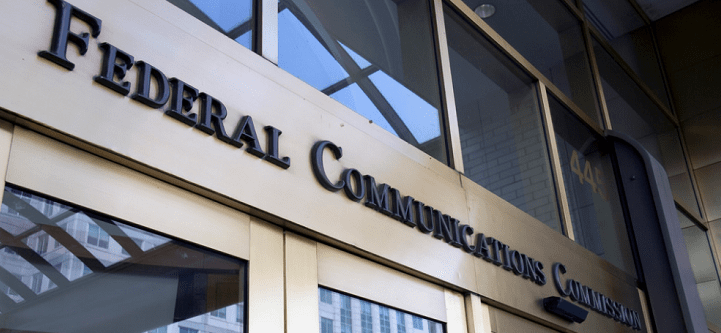

Judicial Watch Asks U.S. Supreme Court to Reverse Lower Court Ruling Granting Unchecked Administrative Power to FCC to Impose Net Neutrality


D.C. Circuit Decision Unlawfully ‘Undermined the Constitutional Separation of Powers’ and Threatens to ‘Destroy Enormous Amounts of National Wealth’
(Washington, DC) – Judicial Watch today announced it joined the Allied Educational Foundation (AEF) in submitting an amici curiae brief to the U.S. Supreme Court, urging the court to hear the appeal of the 2015 case regarding an Obama-era FCC decision which reclassified broadband Internet as a public utility so that it could impose its restrictive net neutrality rules (United States Telecom Association, et al. v. Federal Communications Commission and United States of America (No. 15-1063)). Judicial Watch argues that the circuit court’s decision “undermined the constitutional separation of powers” by allowing the FCC to directly intervene in the broadband Internet economy.”
The amici brief also argues that the lower court’s ruling will expose the FCC to undue influence from politicians and lobbyists now and in the future:
The U.S. Court of Appeals for the D.C. Circuit gave an administrative agency like the Federal Communications Commission extended future powers to destroy enormous amounts of national wealth by reclassifying and regulating broadband Internet service… The result will be constant risk of damage to a major portion of the American economy and a simultaneous increase in wasteful rent-seeking behavior and agency lobbying. Amici are additionally concerned that unless this Court acts to rein in an unchecked administrative state, federal separation of powers doctrine will be badly undermined.
Additionally, Judicial Watch and AEF argue that the D.C. Circuit’s decision “is blessing Congress’ evasion of its constitutional responsibility to make laws. This will lead the executive branch to continue to usurp this authority with bolder and more inventive interpretations of decades-old statutes until eventually all real lawmaking power will lie in the executive and the judiciary.”
On May 18, 2017, the FCC voted to propose a new review of the Obama-era net neutrality regulations passed in 2015 on Internet service, which greatly increased the FCC’s management of Internet content delivery and operations. In July, Judicial Watch and AEF submitted comments to the FCC:
[T]he prior FCC was not content to merely protect Internet openness. Rather than adopt simple rules toward that end, the prior FCC adopted a raft of economic regulations that serve little purpose other than to bring a thriving and successful industry to heel, placing it under the control of federal regulators. This was a simple power grab, taking decision-making authority away from entrepreneurial businesses and putting it in the hands of the FCC.
Judicial Watch/AEF also highlighted the political motivation behind the Obama FCC “power grab” that produced this “politically corrupted decision to regulate the Internet:
The prior FCC’s adoption of the net neutrality regulations was a politically-corrupted decision, which will do far more to increase the wealth of Washington DC power-brokers and lobbyists than it will to protect consumers… These net neutrality rules are a far-left, base-appeasing federal power grab. The regulations as written are certain to increase the amount of rent-seeking behavior already present in a usually smoothly functioning industry. As industry players position themselves to curry favor with federal bureaucrats possessed of far-reaching adjudicatory powers, Internet innovation, investment and consumers all will suffer.
The Judicial Watch/AEF comments were quoted twice in the FCC’s recent order:
Should the hypothetical harms that proponents of Title II imagine eventually come to pass, application of the antitrust laws would address those harms. fn. 517 … Judicial Watch Comments at 12 (asserting that “most of the potential or imagined future violations of net neutrality principles are already illegal under antitrust laws, including acts like website blocking, charging monopoly rents, collusion between industry players, and unfair competition. The existing antitrust laws can already be enforced against broadband providers by the Justice Department, the Federal Trade Commission, and the 50 State Attorneys General.”)
And to the extent an ISP has market power, antitrust law would only allow such ISPs to engage in pro-competitive paid prioritization practices. fn. 910 Judicial Watch Comments at 9-10 (“Allowing a two-sided market to flourish is more effective than regulation for keeping consumer prices low even in true monopoly provider cases, which broadband Internet is likely not, given the ubiquity of wireless broadband.”)
“The Obama FCC’s attempted takeover of the Internet under the fake guise of ‘net neutrality,’ which was blessed by the D.C. Court of Appeals, must be stopped and not allowed to serve as a precedent for further expansion of unconstitutional actions by the federal bureaucracy,” said Judicial Watch President Tom Fitton.
In May 2017, Judicial Watch filed a Freedom of Information Act (FOIA) lawsuit against the FCC seeking records of the Obama White House’s influence in the FCC’s decision to reclassify broadband Internet as a public utility so that it could impose its restrictive net neutrality regulatory rules (Judicial Watch v. Federal Communications Commission (No. 1:17-cv-00933)).
###















